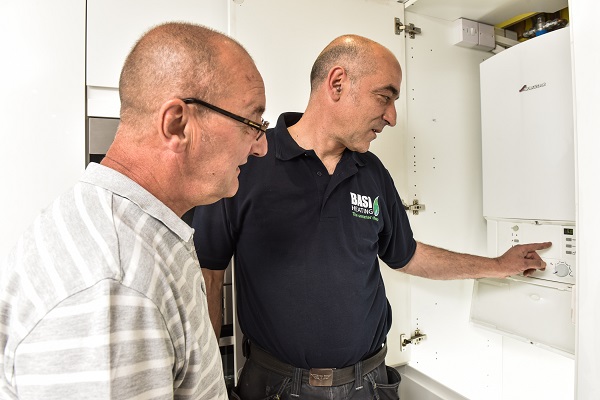What is the correct pressure for a boiler? (& other common boiler pressure FAQs)
Boiler pressure is one of the most common things that can go wrong with central heating systems. In order for your boiler to work efficiently and effectively, the water pressure needs to be stable.
If the pressure’s too high or too low, then this can prevent your boiler from working. And if your system’s working and your pressure isn’t quite right, it can potentially impact the lifespan of your overall system.
Unless you’re a heating specialist, it’s highly unlikely you’ll know what the correct pressure for a boiler is, how to know if yours is at the right level and what to do if it isn’t.

This blog is aimed at answering these key questions and helping you understand how boiler pressure can impact the overall performance of your heating system.
Q. What does boiler pressure mean?
A. Boiler pressure refers to the pressure of the hot water that runs throughout your central heating system. Meanwhile, water pressure relates to the pressure of the water that flows through your taps.
Q. What is the correct pressure for a boiler?
A. The pressure on a boiler should sit between 1 and 1.5 bar. Most manufacturers recommend an optimal working pressure of 1.3 bar. Our advice would be to refer to the manual that came with your boiler or, better still, ask an expert. Boilers aren’t things you should attempt to fix yourself, unless you know how.
Q. How can I tell if my boiler pressure’s at the right level?
A. One of the key tell-tale signs that your boiler pressure’s not right, is if your boiler keeps cutting out and preventing your central heating from working. Another sure-fire sign is the pressure gauge on your boiler, if it’s not within the green, and has moved into the red, don’t ignore it, get it checked out.
Q. How do I get the pressure down on my boiler?
A. This isn’t something we recommend you do yourself unless you know what you’re doing. Generally speaking, reducing the boiler pressure involves bleeding your radiators, as this will release the pressure in your central heating system and then your boiler. Using a special radiator key, you should bleed your radiators until all of the air stops coming out of them and water starts to trickle out.
Q. Should my boiler pressure increase when heating is on?
A. When you switch on your heating, the water that’s in the pipes and radiators will heat up and expand. This expansion will cause the pressure to rise within the entire system. Ideally, your boiler pressure shouldn’t increase by more than 1 bar above the optimal working pressure once you’ve switched your heating on. (For advice on what your optimal working pressure should be, get in touch and we’ll arrange for one of our friendly heating engineers to take a look at your system).
Q. Why does my boiler keep gaining pressure?
A. This could be caused by the fact there’s too much water in the expansion tank and too little air. This can easily be rectified by closing the valve between the expansion tank and boiler and completely draining the tank. Then the water supply valves should be reopened to refill the system. The pressure should then remain at a constant level. However, we wouldn’t recommend you do this yourself, it’s potentially dangerous and could cause more damage if not carried out correctly.
We hope these FAQs have helped clear up some of the queries you may have had in relation to your boiler pressure. If you’re unsure about any aspect of your central heating system, either because it’s not working properly or you’d just like to double check it’s operating efficiently and effectively, contact us today. You can call us on 0800 980 6018 or complete our short contact form.









